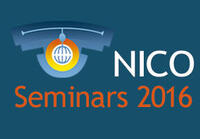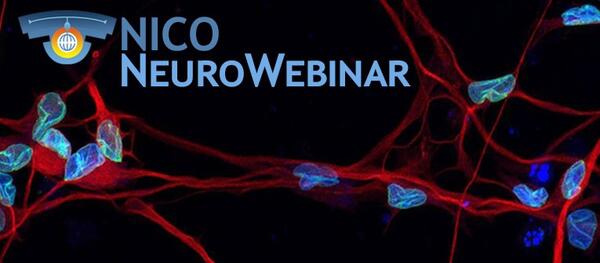Thursday, 16th June - h 14:00
Seminars room, NICO
Repurposing FDA-and EMA-approved drugs for their remyelination properties: the hurdles and the good news for regenerative medicine in multiple sclerosis
Antonella Ragnini-Wilson
Department of Biology, University of Rome "Tor Vergata", Rome
and Department of Translational Pharmacology, Fondazione Mario Negri Sud, Santa Maria Imbaro (CH), Italy.
To improve current therapies, personalized medicine in multiple sclerosis focuses on the identification of early biomarkers to better stratify patients according to their expected disease progression and to identify, among FDA- and European Medicines Agency (EMA)-approved agents, those facilitating endogenous repair and re-myelination to be used for the therapy. This have allowed interdisciplinary teams to develop an immortalised OPC cellular model suitable for phenotypic screen of drugs acting in remyelination. Here, we will give an overview of the prospective to bring the already selected FDA-approved drugs to clinical attention for their remyelination properties in combination with immunomodulatory therapies.
Host: Antonio Bertolotto
Abstract
Multiple sclerosis is an autoimmune demyelinating disease of the of the central nervous system (CNS) that affects >1 000 000 people in the western world and is second only to trauma as a cause of neurological disability in young adults. We have more and more tools, focused on modulation or suppression of the immune system, able to alt or reduce novels attach to the myelin sheath of the CNS at different stages of disease progression. These treatments allow relapsing remission multiple sclerosis (RRMS) patients to remain relatively healthy for long periods, but we have still few “bullets” against the progressive forms of disease restoring myelin deficits.
To improve current therapies, personalized medicine in multiple sclerosis focuses on the identification of early biomarkers to better stratify patients according to their expected disease progression and to identify, among FDA- and European Medicines Agency (EMA)-approved agents, those facilitating endogenous repair and re-myelination to be used for the therapy of patients with long history of disability. So far the main problem to perform large drug screening campaigns for the purpose of the CNS re-myelination, was the lack of a suitable cellular model representative of pre-myelinating oligodendrocytes.
During the past years phenotypic screening technologies and focused drug libraries become available also in academic environments. This have allowed interdisciplinary teams, comprising biologists with deep understanding of the biological processes to work together with pharmacologists and clinicians the facto increasing the possibility to bring compounds to clinical use Our Drug discovery Unit born in 2008 and among others, developed an immortalised OPC cellular model (OlineuM) suitable for phenotypic screen of drugs acting in remyelination (Porcu et al., 2015). During my talk I will give an overview of the prospective to bring the already selected FDA-approved drugs to clinical attention for their remyelination properties in combination with immunomodulatory therapies.








